That we've broken their statues,
that we've driven them out of their temples,
doesn't mean at all that the gods are dead.
- IONIAN, Constantine Cavafy
When cornered, prodded or embarrassed, a squid will emit much ink. Similarly, when asked about the return of the Parthenon Sculptures to Greece, British ministers and museum officials will go on about their “clear legal title” and “rights of ownership”. They may also speak in impassioned tones about “the integrity of the Collection” (a phrase we will explore in a later column) and their duty to posterity and humanity as a whole. How do they sleep at night, one wonders, with so much responsibility weighing down upon them? However, the real issue, as they know perfectly well, is far simpler: What does Justice require? What is the right thing to do? What is fair?
Which is why Boris Johnson, for all his debating skill and experience (a “formidable debater” at Eton and President of the Oxford Union debating society at Oxford University), would probably never consent to debate matters of justice with a little girl.
The clever clouds of rhetoric and repartee would soon be cleared away, leaving the Emperor naked and exposed. Little girls, you see, know a thing or two about right and wrong - and what is fair. Which brings us to Melina, my neighbor’s nine-year-old daughter. Named after the actress-politician Melina Mercouri, and similarly passionate about justice and the Parthenon, Melina would be unmoved by arguments about “clear legal title” or “rights of ownership” (“That’s ridiculous!” she would exclaim.) In this 1-minute video taken during a stroll through the Acropolis Museum last year, Melina cuts right to the heart of the matter:
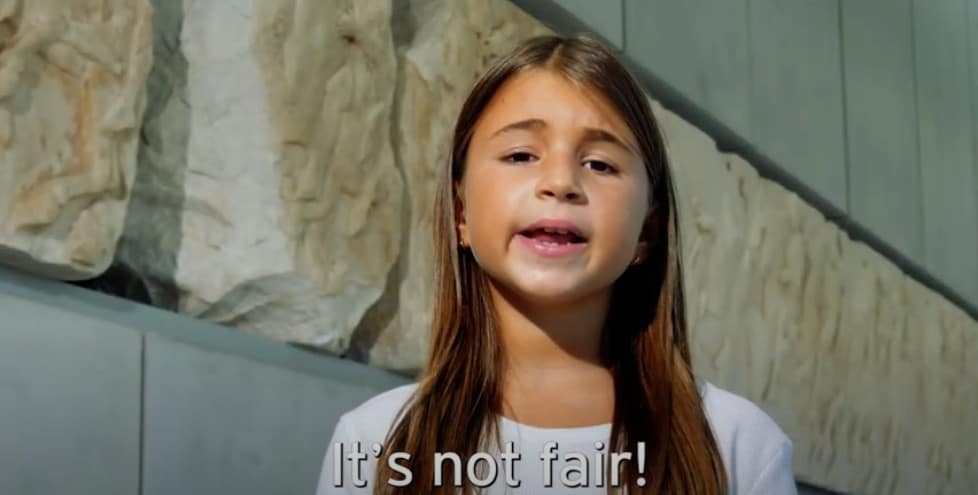
It really is that simple. So simple, in fact, that even adults are often able to understand what this issue is all about and express it in their own adultish way. Ever since Elgin dismantled the Parthenon to decorate his mansion in Scotland, Britons have been expressing their chagrin and consternation – and have been calling for their country to do the right thing. Take, for instance, the 1890 article “Give back the Elgin Marbles” in the British journal “Nineteenth Century” by Frederic Harrison, prominent Oxford academic, historian and jurist:
“The Parthenon Marbles are to the Greek nation a thousand times more dear and more important than they can ever be to the English nation, which simply bought them. And what are the seventy-four years (in 1890) that these dismembered fragments have been in Bloomsbury when compared to the 2,240 years wherein they stood on the Acropolis... Athens is now a far more central archaeological school than London. Of course, the sneer is ready, ‘Are you going to send all statues to the spot where they were found?’ This is all nonsense. The Elgin marbles stand upon footing entirely different from all other statues. They are not statues: they are integral parts of a unique building, the most famous in the world.”
A generation later, in 1924, Harold Nicolson, an up-and-coming young diplomat in the Near East Department of the Foreign Service, urged the British Government to “take the opportunity to put right an ancient wrong” by returning the sculptures to Athens.
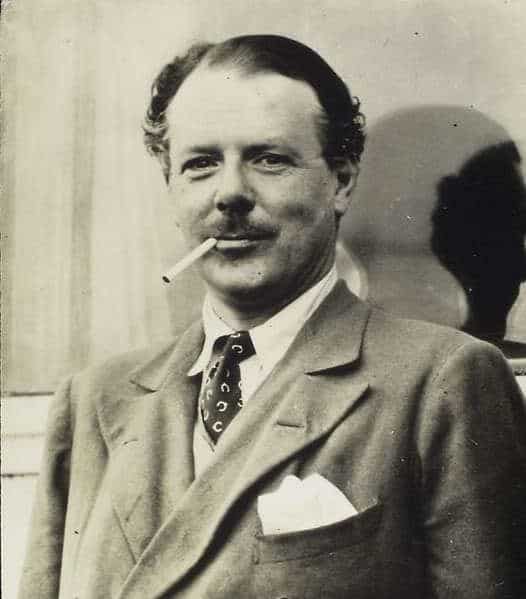
“Henceforth, we shall say that heroes fought like Greeks” – Winston Churchill
Two decades later, at the beginning of World War II, Britain saw that Greece, alone among its allies, was fiercely resisting the Nazi onslaught. Looking for ways, both material and symbolic, to show support and appreciation, the Foreign Office asked the British Museum whether now might be the proper time to return the Parthenon Sculptures. Without once mentioning their “rights of ownership”, the head of the Classical Department of the Museum sent the following memorandum:
“The Greeks regard [Lord Elgin’s action] as a spoliation of their national heritage... The point is that the Acropolis of Athens is the greatest national monument of Greece, and that the buildings to which the Marbles belonged are still standing or have been rebuilt. The return of the Marbles... would gratify Greek sentiment.”
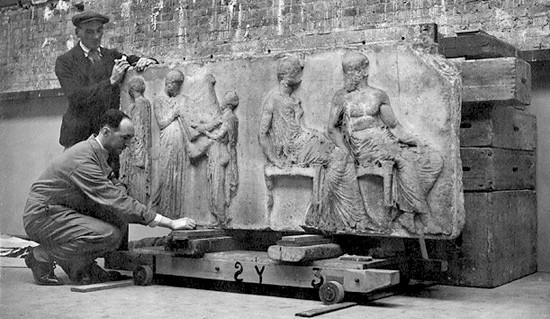
Decades later, Britons were still debating what to do about the Sculptures. In this 1961 memorandum to the Foreign Minister, the head of the Near East Department of the Foreign Office again repeated a longstanding opinion within the Ministry, that the Sculptures had:
“a close association with the history and national life of Greece and that they fall into a small and narrowly restricted category of works of art which should remain in the [Greek] national heritage.. It seems to us that the Elgin Marbles represent a special case to which special arguments apply and which would not necessarily constitute a precedent if it were decided to return them to Greece.”
A not-so-distant memory: common sense and fair play
It seems that, as recently as 1961, common sense and fair play still resonated in the Foreign Office, and people who were being frank with each other saw no important reasons not to return the Sculptures – and many compelling ones to do so. Going back to Melina for a moment and reflecting on the sense of justice that one can hear behind her words, it seems that we can distill this issue even further - on a more personal level. As human beings, it is accepted that we will, from time to time, make mistakes that may cause pain to others. It is also accepted that the right thing to do in such cases is to admit our wrongs, apologize and try to put things right. At least this is how we try to raise our children. Isn’t justice on a large scale simply justice on an individual level writ large? And wasn’t it on the playing fields of Eton where we learned to play fair in the first place?
From Empire to a new Destiny
Britain has embarked on a brave new chapter in its history. It has put behind it the model of Empire in search of a new identity, based on respect, justice and cooperation within the community of sovereign nations. Dealing with the question of the Parthenon Sculptures will be an important step on this journey, and we owe it to our British friends to help make this step as creative and constructive as possible.
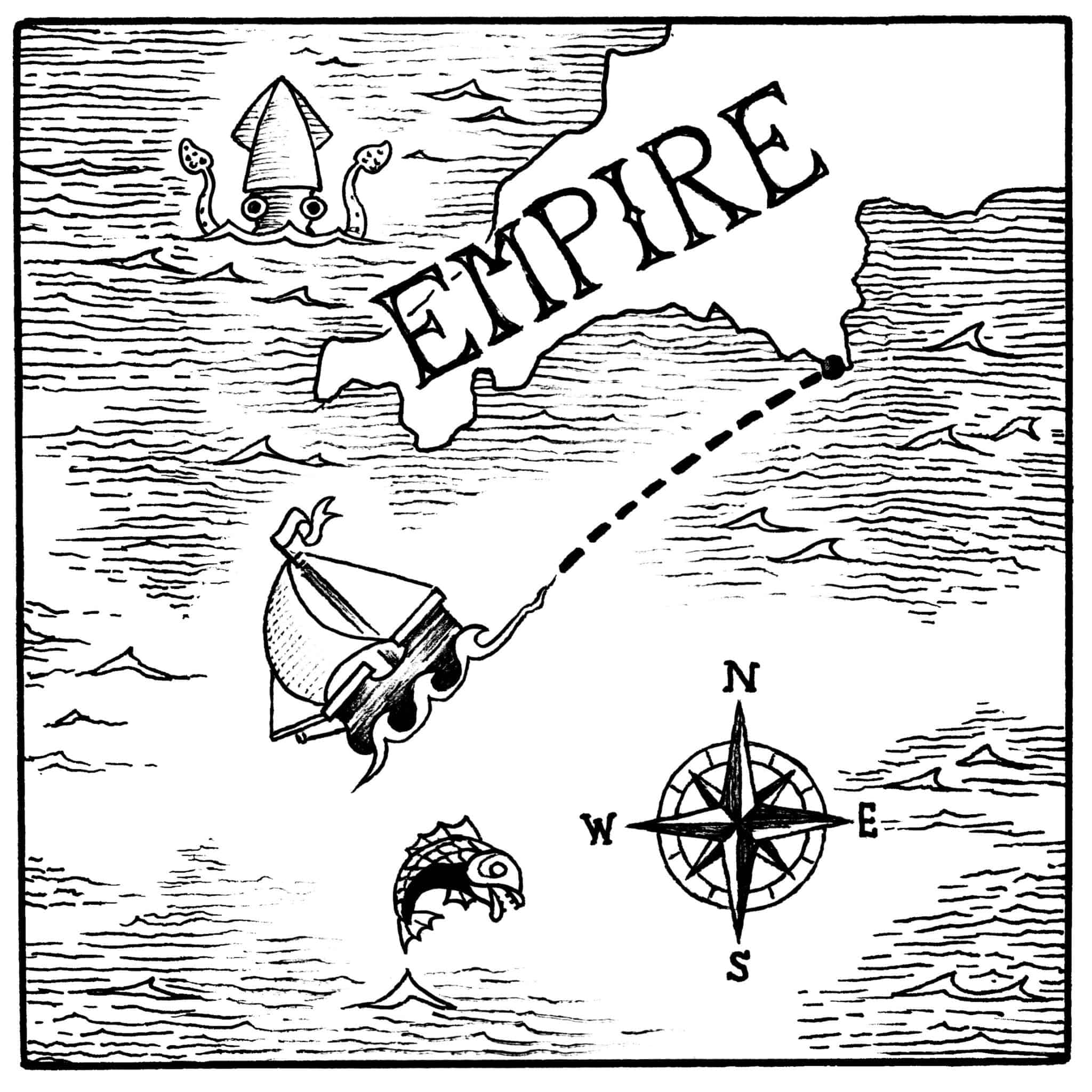
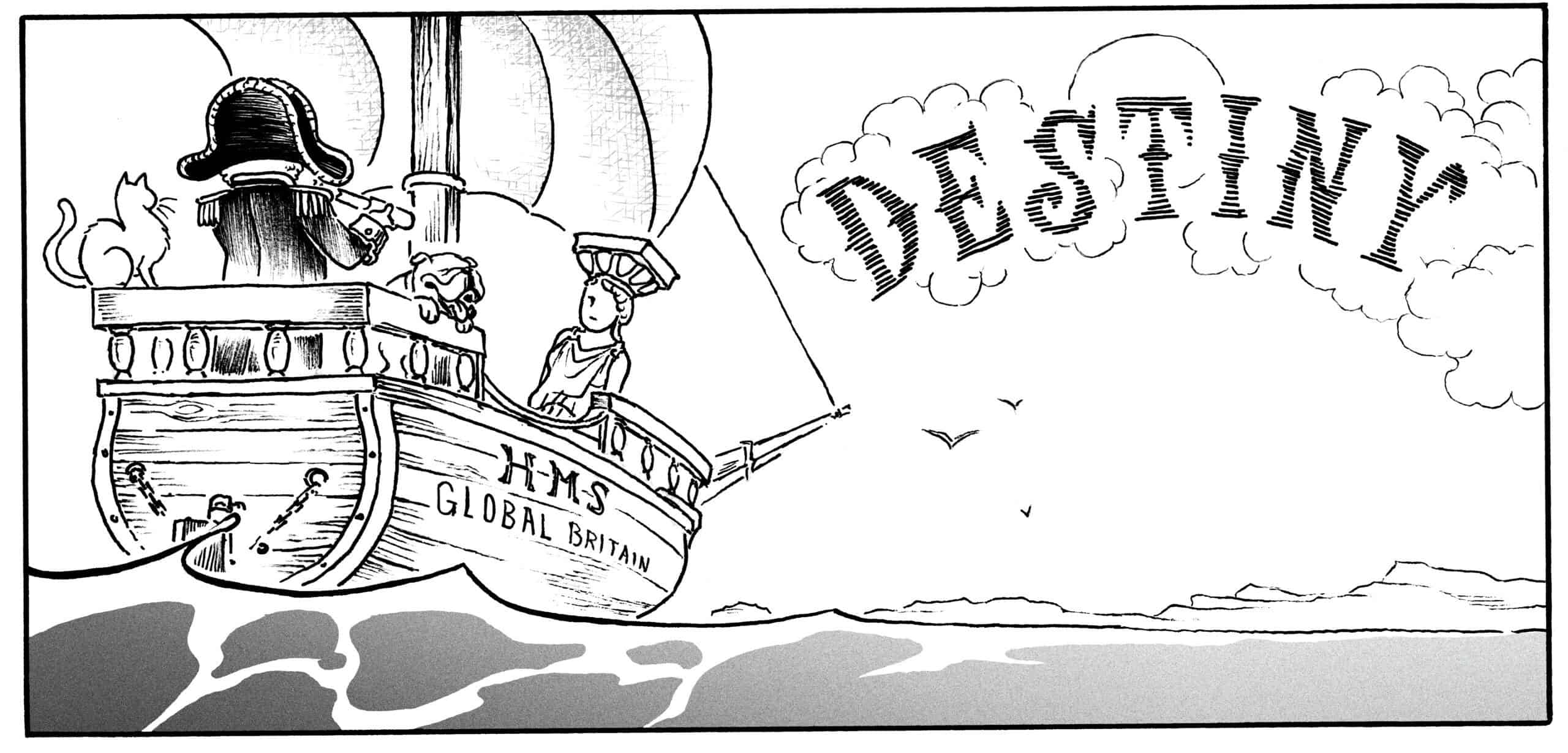

NEXT WEEK:With cooperation rather than confrontation in mind, we are going to look at the crucial role British philhellenes have played in helping Greece achieve her freedom and independence. You see, for every Elgin, there is a Lord Byron, Stephen Fry, Norman Palmer or Victoria Hislop.
ABOUT THE PARTHENON REPORT | DON MORGAN NIELSEN:
In this bicentennial year since the birth of the modern Greek State, of both pandemic and celebration, Greek City Times is proud to introduce readers to a weekly column by Don Morgan Nielsen to discuss developments in the context of history, politics and culture concerning the 200-year-old effort to bring the Parthenon Sculptures back to Athens.
Classicist, Olympian and strategic advisor, Don Morgan Nielsen is currently working with an international team of colleagues to support Greece’s efforts to repatriate the Parthenon Sculptures.
Click here to read ALL EDITIONS of The Parthenon Report by Don Morgan Nielsen
Feature Image : Copyright Nick Bourdaniotis | Bourdo Photography


